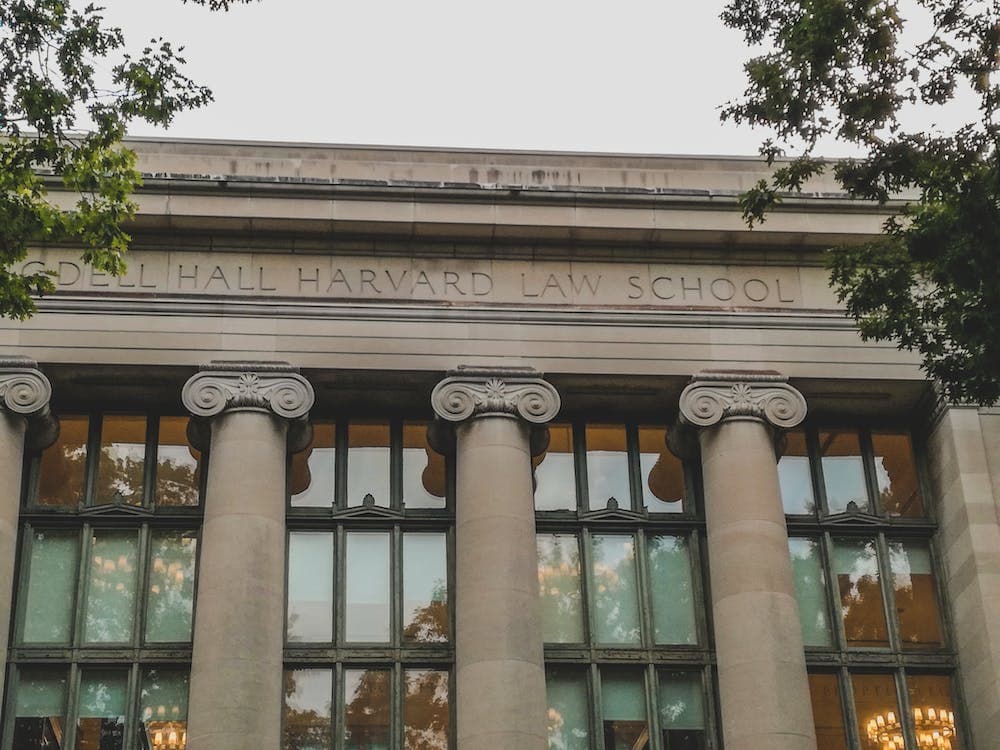Pursuing a law degree is a challenging feat. It requires dedication, hard work, and a solid educational foundation to prepare you for the rigors of legal school.
Fortunately, many pre-law colleges can help you on your path to becoming a lawyer.
We collected 4 schools that offer specialized classes, mentorship opportunities, and other resources that can give you the best chance at success.
The best pre-law colleges offer courses in a wide variety of subjects, for instance, including:
- Constitutional and Administrative Law
- Contract Law
- Criminal Law and Procedure
- Evidence and Torts
- Legal Research and Writing
If you have your sights set on attending one of the top pre law colleges in the United States, we and legal resume writers, professional career advosirs and coaches from Resume Writing Lab have compiled a list of schools with outstanding reputations:
Harvard University
Harvard University is arguably one of the most prestigious universities in the world, and its law school ranks among the top five globally.
Harvard Law School offers several different degrees, including a Juris Doctor (JD) and an LLM (Master of Laws). Harvard offers courses such as “Introduction to American Legal System,” “US Constitutional Law,” and “Business Law.”
The curriculum focuses on theory and practice, allowing students to learn from leading legal scholars, faculty members, practitioners, and judges. Harvard Law School also provides various resources such as career services, academic support services, library access, and more.

Yale University
Yale Law School has long been regarded as one of the best law schools in the country. The school also offers seminars on topics such as constitutional law, civil rights law, criminal procedure, and more.
Yale Law School is dedicated to providing its students with a comprehensive education that emphasizes critical thinking, problem-solving, professional development, doctrinal expertise, public service commitment, and more.
They also provide students with access to multiple research libraries and career development resources.
University of California – Berkeley (UC Berkeley)
UC Berkeley’s School of Law is consistently ranked as one of the best law schools in the nation.
But what makes UC Berkeley stand out from other top schools is its rigorous, interdisciplinary curriculum that prepares students for successful careers in law and beyond.
UC Berkeley also offers a variety of opportunities for students interested in pursuing legal studies such as internships, externships, research programs, and more.
Stanford University
Stanford Law School is yet another top university offering excellent pre-law degrees.
They offer several different law degree options, including a JD program that takes three years; an LLM program that spans two years; and an SJD program lasting four years.
Stanford Law School’s curriculum focuses on equipping students with both theoretical knowledge as well as practical skills through courses such as:
- legal writing
- analysis workshops
- seminar classes on current topics in legal scholarship
- practice areas such as criminal justice
- international law classes focused on current issues
- trends in business-related fields like finance
- taxation law.
They also offer various resources such as academic counseling services & pro bono opportunities for hands-on experience outside of class work or internships with local firms or organizations.
Public and private pre-law schools
Public and private law schools are among the top pre-law colleges. Public institutions usually charge lower tuition because state governments support them; most private institutions charge higher education because they rely on student tuition payments and donations from alums and corporations.
Consider the differences between these types of universities before deciding which one is best for you: public vs private pre-law colleges.
Public pre-law schools are funded by the state and are, therefore, tuition-free. While they are not as prestigious as their private counterparts, they offer a few advantages that make them more attractive to students:
- Easier application process. Because public schools don’t have to pay for expensive recruitment costs like private schools do, they’re less selective about who they accept into their programs. This means that you may be able to get into a public school if you have decent grades but poor LSAT scores (or vice versa).
- Lower cost of attendance. Public schools generally charge lower tuition than private ones do, so if money is an issue, this could be an advantage for you. However, keep in mind that while tuition may be lower at a public school, living expenses tend to be higher because these schools tend to be located in large cities with high living costs, such as New York City or San Francisco.
- More opportunities for assistantships and scholarships. If you’re looking for ways to offset the cost of your education without taking on excessive debt — or if you just want some extra spending money — then consider applying for an assistantship or scholarship at one of these schools.

Conclusion
These are just four of many excellent pre-law colleges across the United States. Whether you’re interested in attending Harvard or Stanford, or another college altogether, make sure you do your research before making your decision so that you choose a college that best meets your needs and interests as an aspiring lawyer!
With the right preparation from one of these pre-law colleges — or any other top university — you’ll have all the tools necessary for success when it comes time to apply for law school admissions!
